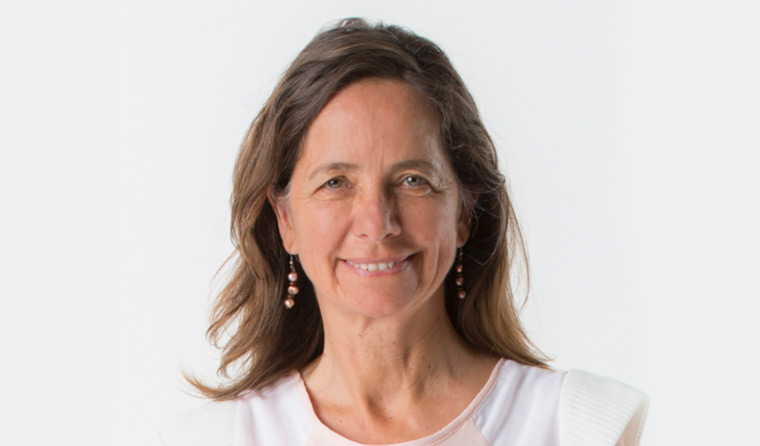News
Natural remedies: Help or harm?
With flu season upon us, newsGP speaks to four experts about what GPs should know when it comes to complementary and alternative medicines.
 In some cases, complementary and alternative medicines can do more harm than good.
In some cases, complementary and alternative medicines can do more harm than good.
The winter months are often associated with people increasing their vitamin C intake or stocking up on ginger tea.
But the evidence is often unclear as to whether these types of remedies have any benefits, while in some cases they can do more harm than good.
GP and Melbourne University Associate Professor Marie Pirotta told newsGP that patients will often try complementary medicines (CMs) when mainstream medicine has limited capacity to help. In such a situation, she said, GPs are in a unique position to help guide patients towards evidence-based decisions.
‘A lot of people use complementary medicines independently and see it as completely separate to their interaction with GPs, but a lot of other people would like their GP to be knowledgeable enough to help them to make decisions about using CMs,’ she said.
‘If we can give them at least some information to allow them to make the decisions safely, I think that would be ideal.’
Associate Professor Pirotta understands, however, that the large volume of information makes it difficult for GPs to have a comprehensive knowledge of CMs in addition to the training they receive in medical school.
‘I’m a GP but I’ve never done any training in herbal medicine. People who do training in herbal medicine, it takes them years … so it’s a lot to expect GPs to learn,’ she said.
‘Usually when I talk to people, I would say one approach is to focus on the things that are more commonly used in the community and try to at least get a working knowledge of how they can be used and how they should not be used, and what the main side effects and interactions might be.’
Professor Mieke van Driel, Chair in General Practice at the University of Queensland, recommends a collaborative approach – ie with a non-prescribing clinical pharmacist – when approaching CMs. She has found this approach helps avoid potential conflicts of interest that can sometimes influence advice provided at pharmacies.
‘The CM section is often a very lucrative part of the business and [pharmacists] may be reluctant to be critical about the products they sell,’ she told newsGP.
‘However, they certainly have a duty of care to advise patients about harm or potential interactions with other medications the patient is taking – provided they know this.
‘A lot of the CMs are bought over the counter without consultation with a pharmacist, so opportunities for this conversation are usually missed.
‘I think it is important that we as GPs explicitly ask about over-the-counter treatments our patients are taking, especially when we are prescribing them prescription-only medicines.’

Associate Professor Vicki Kotsirilos said that although adverse reactions are relatively rare, their potential severity makes it important that GPs are aware of the possibilities.
According to Associate Professor Vicki Kotsirilos, who was on both the Australian Drug Reactions Advisory Committee (ADRAC) and the Therapeutic Goods Administration’s Complementary Medicines Regulatory Committee, the incidence of reported adverse reactions or interactions to ADRAC for a CM compared with pharmaceuticals is less than 2% of the total reactions.
But reactions can be severe and she advises GPs to utilise software, such as the free About Herbs app, to supplement their knowledge.
‘It is vital that GPs are well educated in being aware of potential adverse reactions and interactions,’ she told newsGP.
‘It’s important that we encourage our patients to tell us when they’re using some form of complementary medicine to avoid this potential interaction, and that we remain non-judgmental and provide the opportunity for patients to disclose that information so we can ensure that they are safe.
‘If there is some form of suspected adverse reaction report it straight to ADRAC, ask the patient to stop the complementary medicine, monitor them and do blood tests if necessary, or admit to hospital if they’re severe.’
GP Dr Dora von Conrady, who has a special interest in the area, told newsGP the fact CMs are a multibillion-dollar industry points to an unmet need in healthcare. She believes practitioners should be open to having a discussion about CMs.
‘My past research has shown that health literacy is not the same as literacy, and that very well educated people may not make wise health decisions,’ she said.
‘Some CMs are safe and effective and I would advise GPs to try to direct patients to CMs with a reasonable evidence base behind them, both in terms of efficacy and safety.
‘It is also important to be clear about CMs where little to no research exists, as these could potentially lead to harm. GPs can [sometimes] feel poorly equipped to advise given the paucity of evidence, but it must be kept in mind that this is the same evidence that is available to pharmacists.’
complementary medicines flu
newsGP weekly poll
Which of the following areas are you more likely to discuss during a routine consultation?